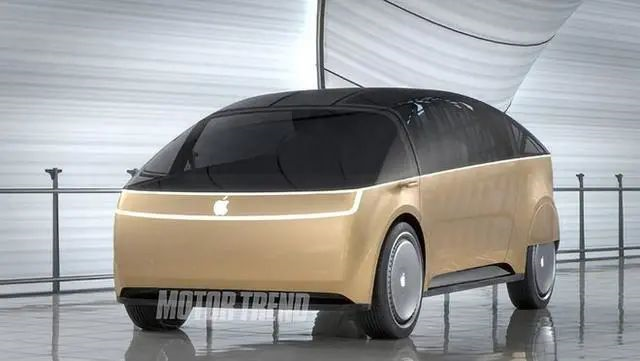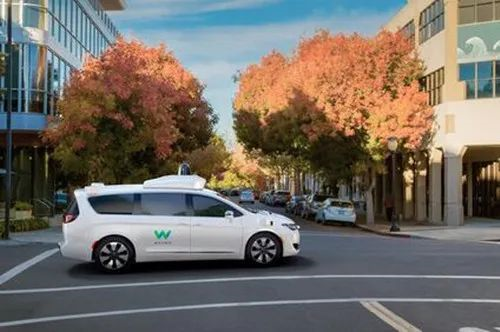Author: A fan of autonomous driving
Introduction
The foreign autonomous driving industry has been experiencing constant turbulence in 2021, with multiple executives from Apple and Waymo leaving their positions, as well as Velodyne, a manufacturer of lidar sensors, experiencing various troubles. On the other hand, in China, more and more car-making companies are emerging, and companies in the Robotaxi sector are also starting to expand. It remains to be seen whether the turbulent situation abroad will affect the domestic market, and this requires time for consideration.
Three High-Ranking Executives from Apple’s Autonomous Driving Car Division Leave in Half a Year

On June 3, it was reported that in just six months since the beginning of 2021, three high-ranking executives from Apple’s autonomous driving car division have left their positions.
Reports indicate that Apple has hundreds of engineers researching potential autonomous driving car technology, and many employees researching how to develop complete cars. The department is led by Doug Field, a former senior automotive engineer at Tesla, and his management team consists of fewer than 12 executives. However, at least three of them have left the team just this year.
Dave Scott, who once led Apple’s car-related robot research team, announced his resignation and became the CEO of healthcare company Hyperfine, which is committed to developing the next generation of magnetic resonance imaging systems. Prior to him, Jaime Waydo, head of Apple’s autonomous driving car safety and regulatory team, resigned and became the chief technical officer of startup company Cavnue, which focuses on ensuring the safety of autonomous driving cars on public roads.
In February of this year, Benjamin Lyon announced his resignation and became the chief engineer of Astra, a startup dedicated to developing satellite launch technology. A few years ago, Lyon helped create Apple’s original car team and played a key role in developing future projects.
Reports indicate that John Giannandrea, Apple’s senior vice president of machine learning and artificial intelligence, has been in charge of the car project since the end of last year. Since its launch in approximately 2014, Apple’s car research and development work has undergone multiple restarts, and there have been numerous changes in management.
Initially, Apple’s plan was to build complete cars to compete with Tesla, but around 2016, they reduced their goals and began focusing on developing autonomous driving car systems. A few months ago, the company changed their strategy once again and started developing complete vehicles, with some engineers from the autonomous driving car division participating in the work.
Many analysts predict that Apple will announce a partnership with a car company as early as the first half of 2021 and may unveil their product sometime between 2025 and 2028.## 9 executives including CFO of Waymo have resigned
According to foreign media reports on May 13th, Waymo, the autonomous driving car department under Alphabet, Google’s parent company, is a leading manufacturer in autonomous driving technology. However, there have been major changes in their senior management in recent times. After CEO John Krafcik announced his resignation, the CFO and another executive will also resign.

According to foreign media reports, the news about the departure of Waymo’s CFO appeared on Wednesday local time. Waymo confirmed that its CFO Ger Dwyer will resign.
In addition to Ger Dwyer, Waymo also confirmed that the company’s Automotive Partnership Lead, Adam Frost, will also resign.
With the departure of Ger Dwyer and Adam Frost, it means that three important executives, including CEO John Krafcik, have left Waymo since April.
John Krafcik announced his resignation in a letter to all employees on April 2nd. He stated in the letter that after leading Waymo for five and a half years, he had decided to step down as CEO and start a new journey.
When John Krafcik announced his resignation as CEO, he also announced the successor, the COO Dmitri Dolgov and the CTO Tekedra Mawakana, who will become the company’s co-CEOs.
However, there has currently been no announcement of replacement candidates for departing CFO Ger Dwyer and Automotive Partnership Lead Adam Frost.
Waymo’s significant personnel changes are rare and suggest the possibility of rebuilding the team. Waymo, which has been trying to promote city automated driving taxi services, seems to have encountered bottlenecks in urban expansion. It was also previously reported that Waymo’s driverless cars easily get stuck in traffic scenarios such as cone-shaped structures. It remains to be seen whether the new CEO and management team will be able to bring Waymo to a higher level.
Velodyne goes public as a cheap stock
Velodyne Lidar has always been a pioneer of mechanical laser radar, and its stock price has remained unstable since going public last year. The stock price has fallen approximately 25% last month and approximately 55% year to date.Based on the development in the first half of this year, Velodyne’s projected sales for the year is between $77 million to $94 million, far lower than the $150 million projected at its IPO last year. Secondly, the company has also exposed some inappropriate behavior related to the board of directors and company processes. After the investigation, the company founder and apparently its largest shareholder, the chairman of the board of directors was replaced in February, followed by governance-related issues. Although the long-term impact of governance issues is difficult to evaluate at present.
Lidar technology is seen as the cornerstone of autonomous driving systems, with most OEMs choosing this technology for their autonomous driving roadmap, and Velodyne is still one of the largest players in the emerging market. Unlike most lidar companies in the development stage, Velodyne has already obtained some income from commercial deployments. Its revenue in Q1 was $18 million, surpassing its competitor Luminar, whose sales were about $5 million. Velodyne shipped about 2,700 lidars in Q1, mainly selling higher-priced sensors for research projects and prototypes (with an average price of approximately $3,900).
With the push to enter the mass market and expand partner relationships, the company hopes to ship as many as 9 million lidars by 2025. Velodyne is seeking to produce more affordable sensors, such as the H800Velarray solid-state lidar (with a price around $500) – which can be used for driver assistance and autonomous driving systems, as well as its smallest sensor Velabit. Velodyne also continues to expand its channels and partner relationships, which are key to its long-term revenue growth.
The performance of the top three foreign autonomous driving companies in the first half of this year is not satisfactory, and there are still continuous new entrants and car makers in the field compared to China. According to data from Qichacha, in the first quarter of this year, 285 newly registered autonomous driving companies have increased by 17.8% year-on-year. How will these companies develop in the future? What kind of turning point will the field of autonomous driving have in the second half of 2021?
This article is a translation by ChatGPT of a Chinese report from 42HOW. If you have any questions about it, please email bd@42how.com.